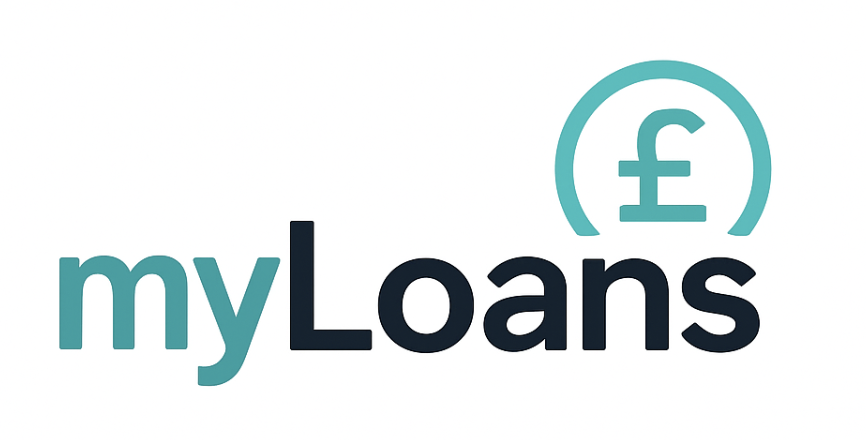Table of Contents
Introduction
Short term loans give borrowers quick access to cash when unexpected expenses appear. They can help in emergencies such as car repairs, utility bills, or urgent household costs. However, lenders do not approve every application. Many people feel surprised when their requests are declined, even though they believe they meet the eligibility criteria shown on websites.
Understanding how to get approved for short term loans UK takes more than completing an online form. The Financial Conduct Authority (FCA) requires lenders to check whether each loan is affordable and suitable. As a result, approval depends on your credit history, income, and ability to repay without falling into further debt.
For example, someone with a lower credit score may still gain approval if they show steady income and manageable expenses. In contrast, a borrower with higher earnings but large existing debts might be refused because repayments would not be affordable. Therefore, knowing what lenders look for in advance can save time, reduce unnecessary credit checks, and improve your chances of success.
This guide explains the full process, what lenders assess, the documents you may need, common mistakes that cause rejection, and practical tips to increase approval odds. It also covers what to do if your application is declined and highlights safer alternatives to high-cost credit.
How Short Term Loan Applications Work
Most applications for short term loans in the UK start online. The process is quick and straightforward, but each stage plays an important role in determining approval. Understanding how short term loan applications work will help you prepare in advance and increase your chances of success.
First, you complete an online application form. It asks for basic personal details such as your name, address, and date of birth. You must also provide financial information, including income, expenses, and employment status. Supplying accurate information at this stage is vital, because lenders check it against external records.
Next, the lender or broker runs a credit and affordability check. FCA rules make this step mandatory. The credit check reviews your past borrowing history, while the affordability assessment looks at your income compared with your outgoings. As a result, lenders may still approve applicants with poor credit if the repayments appear manageable.
After this stage, most lenders issue a decision within minutes or hours. Automated credit scoring technology speeds up the process, but some lenders request extra documents such as bank statements or payslips before confirming the decision.
Finally, if the lender approves your application, the funds often reach your bank account within 24 hours. However, fast approval does not mean guaranteed success. Lenders can only provide loans that meet FCA standards for affordability and suitability.
📖 Learn more: FCA – Creditworthiness and Affordability
What Lenders Look For in Short Term Loan Applications
When reviewing an application, lenders consider several important factors. Understanding what lenders look for in short term loan applications helps you prepare in advance and gives you a stronger chance of approval.
Credit Score and History
Your credit file is one of the first things a lender checks. Missed payments, defaults, or County Court Judgments (CCJs) can lower your chances of approval. However, a poor score does not always lead to rejection. Some lenders specialise in short term loans for bad credit, provided the loan is affordable. Therefore, even applicants with past issues may still qualify if they can prove repayments are manageable.
Income, Employment and Affordability Checks
Lenders also review your income and monthly expenses to confirm whether repayments fit your budget. Regular employment or a consistent income from benefits often improves your approval odds. As a result, people with stable earnings usually find it easier to get approved than those with irregular or unpredictable income.
Documents You May Need to Provide
To support your application, lenders often ask for extra documents. For example, they may request bank statements to check your spending habits, payslips or proof of benefits to confirm income, and proof of ID and address for verification. In addition, preparing these documents in advance can speed up approval and reduce the risk of delays.
👉 Key takeaway: If you want to know how to get approved for short term loans UK, show lenders that you can afford repayments, provide accurate information, and demonstrate financial stability.
How to Get Approved for Short Term Loans UK: Practical Tips
If you want to improve your chances of being accepted, preparation is essential. Understanding how to get approved for short term loans UK means taking the right steps before submitting an application.
First, check your credit report. Review your file for errors through agencies such as Experian, Equifax, or TransUnion. Mistakes appear more often than many borrowers realise. Correcting them can immediately improve your profile and boost your approval odds.
Next, reduce existing debt. Paying off even small balances can improve affordability and show that you manage credit responsibly. Therefore, lenders are more likely to approve your application when they see that you are keeping up with existing commitments.
In addition, stabilise your income. Regular earnings from work or benefits give lenders confidence that you can handle repayments. If you are self-employed, providing several months of bank statements can demonstrate consistency and reassure lenders about your ability to repay.
Always apply through FCA-authorised lenders or brokers. This ensures your application is protected under UK regulations and shields you from scams. You can confirm a company’s status by searching the FCA Register.
Finally, borrow realistically. Asking for more than you need often reduces approval chances, because lenders compare loan size against income. For example, a request for £2,500 on a low income may raise affordability concerns. Keeping requests within a realistic range shows lenders that you are borrowing responsibly.
👉 Key takeaway: To maximise your chances of approval, prepare thoroughly, keep expectations realistic, and only apply through FCA-authorised lenders and brokers.
Common Mistakes That Lead to Rejection
Many short term loan applications fail because of avoidable errors. Knowing these pitfalls is just as important as learning how to get approved for short term loans UK. By avoiding the mistakes below, you can give your application a better chance of success.
Applying for too many loans at once is one of the biggest problems. Each time you submit an application, the lender performs a credit check. Multiple checks within a short period can harm your credit score and signal desperation. As a result, even if one lender might have approved you, your chances fall sharply after several rapid applications.
Overestimating income or underreporting expenses is another common error. Lenders compare your application against your bank statements and payslips. Therefore, any inaccuracies can quickly lead to rejection and may even leave a negative mark on your credit history.
Ignoring previous debt problems is also risky. If you have defaults or County Court Judgments (CCJs), some lenders may still consider your application. However, honesty is crucial. Trying to hide past financial issues almost always results in automatic rejection when lenders carry out checks.
Finally, choosing unregulated lenders can put you at serious risk. Applying through companies that are not authorised by the FCA lowers your approval chances and may expose you to scams or illegal lending. For this reason, always check the FCA Register before applying.
👉 Key takeaway: Avoiding these mistakes is just as important as following best practices. Responsible applications made through FCA-authorised lenders give you the best chance of success.
Safer Alternatives to Short Term Loans
Before reapplying, it’s worth exploring safer alternatives to short term loans. These options are often more affordable, less risky, and come with stronger protections for borrowers.
One option is joining a credit union. Credit unions are community-based organisations that lend money at much lower interest rates than payday or short term lenders. They also provide flexible repayment terms, making them a safer and more sustainable choice. You can learn more from the Association of British Credit Unions (ABCUL).
Another alternative is a Budgeting Loan from the Department for Work and Pensions (DWP). The DWP offers these loans interest-free to people on certain benefits. As a result, you only repay the amount you borrow, spread across manageable instalments.
If you qualify, a 0% overdraft or credit card may also be a cost-effective option. While not ideal for long-term borrowing, these products can be cheaper for smaller amounts. However, it is important to repay the balance before the promotional period ends, otherwise standard interest rates apply.
Support from family or friends can be another safer solution, but only if handled responsibly. Setting clear repayment terms in writing helps avoid misunderstandings and protects both sides.
Finally, debt charities such as StepChange, Citizens Advice, and MoneyHelper provide free and impartial advice. In addition, they can help you explore debt management plans, budgeting strategies, and other options to regain control of your finances.
👉 Key takeaway: Exploring safer alternatives to short term loans before committing to high-cost credit can save money, reduce risk, and protect your financial wellbeing.
Frequently Asked Questions (FAQs)
1. Can I get approved for a short term loan with bad credit?
Yes. Some lenders specialise in loans for bad credit, but affordability checks always apply. This means you may still qualify if you can show the loan is affordable. However, interest rates are usually higher compared with standard loans. For guidance on borrowing with bad credit, review your file with Experian or Equifax.
2. How fast can I get approved?
Many lenders provide an instant decision, often within minutes. If approved, lenders can transfer funds to your bank account within 24 hours. However, quick approval is not guaranteed. Each application must still pass an affordability check under FCA rules, which may add time in some cases.
3. Do I need a guarantor?
Not usually. Most short term loans in the UK are unsecured, which means you don’t need another person to guarantee the loan. In contrast, guarantor loans are a separate type of borrowing where someone else agrees to take responsibility if you cannot repay.
4. Will applying damage my credit score?
Each application leaves a search mark on your credit file. A single application normally has little impact. However, too many applications in a short period can lower your score and reduce your chances of approval. As a result, it’s best to apply only once you are confident you meet the lender’s criteria.
5. What’s the best way to improve my chances?
The best way is preparation. For example, you can check your credit report for errors, stabilise your income, reduce outstanding debts, and apply only through FCA-authorised lenders. If you follow these steps, you’ll increase your approval odds and lower the risk of rejection. This is the most reliable way to understand how to get approved for short term loans UK.
Conclusion
Getting approved for a short term loan is not just about completing forms—it requires preparation, honesty, and responsible borrowing. By checking your credit report, reducing existing debts, and applying only through FCA-authorised lenders, you can greatly improve your chances of success.
In summary, if you are wondering how to get approved for short term loans UK, the answer lies in being realistic about what you can afford, providing accurate information, and preparing properly before you apply. However, approval is never guaranteed, and borrowing should only be considered when absolutely necessary.
Therefore, if your application is declined, remember that safer alternatives are always available. Options such as credit unions, Budgeting Loans from the DWP, or free guidance from charities like StepChange and Citizens Advice can provide lower-cost and more sustainable support.
👉 Key takeaway: Careful preparation and responsible choices give you the best chance of approval while protecting your long-term financial wellbeing.
Short Term Loans Bad Credit UK: What You Need to Know
When money is tight, having a poor credit history can make borrowing feel impossible. Many people turn to short term loans for bad credit UK as a quick fix, but while these products are widely advertised, they are not always the safest choice. This guide explains how...
Payday Loans vs Short Term Loans UK: What’s the Difference?
When you’re faced with urgent expenses, it’s easy to feel overwhelmed by the different borrowing options available. In the UK, many people search for payday loans vs short term loans UK, but these two products are not the same. They differ in repayment terms, costs,...
Alternatives to Short Term Loans in the UK | Safer Borrowing Options
Looking for alternatives to short term loans UK? While payday loans and other high-cost credit can provide fast cash, they are often expensive and risky if repayments are missed. The good news is that UK borrowers have safer and more affordable options. From credit...
Navigating Short-Term Loans in the UK: Types, Eligibility & Smart Uses
Types, Eligibility & Smart Uses Looking for clear, trustworthy information on short term loans in the UK? You’re not alone. This comprehensive guide explains the types of short term loans, eligibility criteria, FCA regulations, and the smartest ways to use (or...
Comparing Short Term Loans: Key Factors
Comparing Short Term Loans: Key FactorsIntroduction Short term loans are a common borrowing option in the UK, designed to provide fast access to cash for people dealing with unexpected bills, emergencies, or short gaps in income. With many lenders competing for...
Short Term Loans: What You Need to Know
Short Term Loans in the UK: A Complete GuideWhen you need money quickly, short term loans can seem like a solution. They are designed for borrowing small amounts over weeks or months, often from a direct lender. But with high costs and strict rules, it’s important to...
Tips for Securing Short Term Loans Easily
Tips for Securing Short Term Loans EasilyShort-term loans are financial tools designed to help individuals access quick cash for urgent needs. Unlike long-term loans, they have shorter repayment periods, usually ranging from a few...









